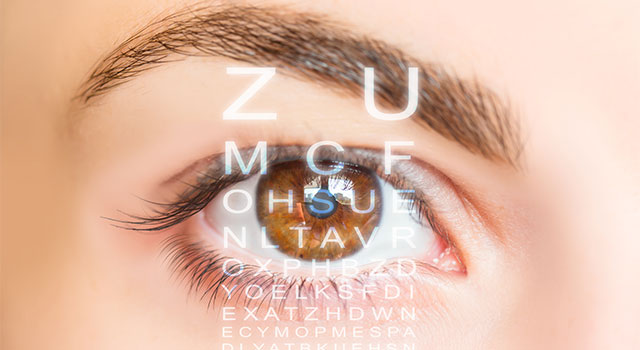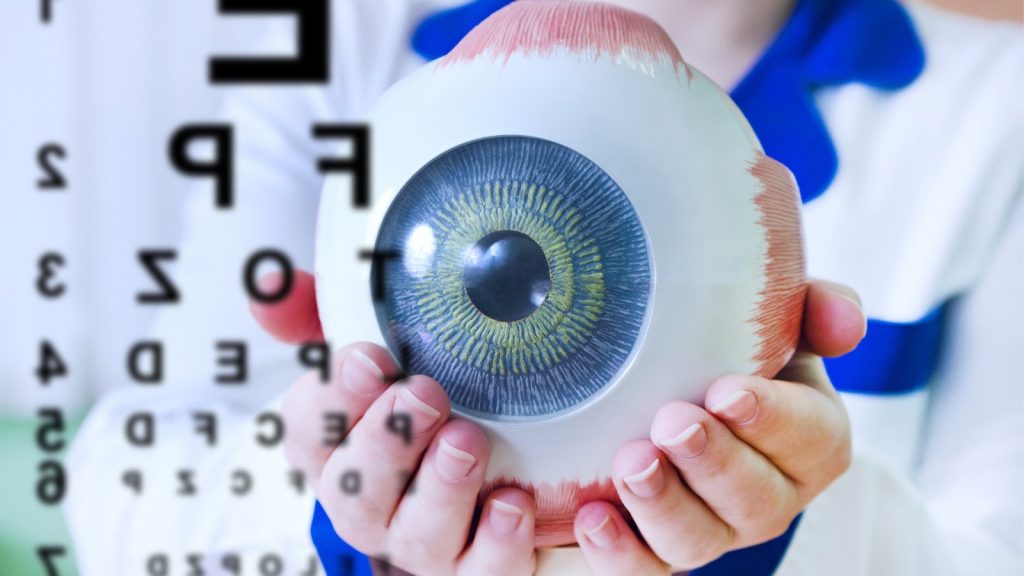Comprehending the Numerous Eye Conditions Treated by Specialized Eye Care Professionals
In the realm of eye care, specialized specialists play a vital role in diagnosing and treating a vast range of eye problems. From common refractive errors that affect vision quality to age-related problems that posture difficulties as we expand older, the know-how of these professionals encompasses managing vision-threatening diseases and complex corneal disorders. The complexities of neurological eye problems present distinct difficulties that necessitate specialized care. As we start this exploration of the different eye problems resolved by specialized eye treatment experts, it comes to be obvious that the detailed internet of eye wellness holds a myriad of interesting understandings waiting to be discovered.
Common Refractive Mistakes
Refractive mistakes are common aesthetic problems created by an imperfection in the eye's capability to properly focus light, resulting in blurred vision. Astigmatism is characterized by an irregularly designed cornea, resulting in distorted or obscured vision at all distances. Presbyopia is an age-related problem where the lens sheds its versatility, making it tough to focus on close things.
These refractive mistakes can be dealt with with numerous approaches, consisting of spectacles, get in touch with lenses, or refractive surgery. Eye care professionals play a crucial role in detecting and handling refractive errors to help people accomplish clearer vision and boost their lifestyle.
Age-Related Eye Problems
One of the most common age-related eye problems is age-related macular deterioration (AMD), a condition that creates central vision loss and can make tasks like reading and driving tough. Cataracts, one more common condition among older people, create clouding of the eye's natural lens, leading to obscured vision. Routine eye exams with specialized eye care specialists are crucial for early detection and monitoring of these age-related eye conditions to protect vision and keep eye wellness as people grow older.
Vision-Threatening Illness
Vision-threatening diseases include a variety of major eye conditions that have the possible to significantly affect a person's sight and overall visual function. These illness posture a threat of irreversible vision loss if not quickly diagnosed and dealt with by specialized eye treatment experts. Some usual vision-threatening diseases consist of glaucoma, diabetic person retinopathy, age-related macular degeneration (AMD), and retinal detachment.
Glaucoma is a team of eye conditions that harm the optic nerve, frequently because of high intraocular pressure, leading to field of vision loss and potential loss of sight if left unattended. Diabetic retinopathy is a difficulty of diabetic issues that influences capillary in the retina, causing vision impairment or blindness. AMD is a progressive problem influencing the macula, causing central vision loss. Retinal detachment takes place when the retina divides from its underlying cells, leading to abrupt vision loss that requires prompt medical focus (refractive surgeries in al).
Very early discovery, routine eye examinations, and timely treatment are important in handling vision-threatening diseases to preserve sight and preserve quality of life. Specialized eye care professionals play a vital you can find out more duty in diagnosing, treating, and taking care of these problems to stop irreversible vision loss.

Corneal Disorders
Corneal problems encompass a spectrum of problems that impact the clear front part of the eye, understood as the cornea. Treatment for corneal disorders varies depending on the particular problem yet might consist of drugs, contact lenses, or in serious instances, corneal transplants. Routine eye exams are important for early detection and monitoring of corneal conditions to preserve vision and eye wellness.
Neurological Eye Conditions
Neurological eye conditions entail disorders that affect the connection between the eyes and the mind, affecting visual processing and general eye feature. These problems can show up in different methods, impacting vision, eye movements, and even the sychronisation between the eyes. One common neurological eye condition is optic neuritis, defined by inflammation of the optic nerve resulting in vision loss, shade desaturation, and discomfort with eye motion.
Another substantial condition is nystagmus, where the eyes make repetitive, uncontrolled motions, impacting aesthetic acuity and deepness understanding. Furthermore, conditions like amblyopia, typically described as "lazy eye," arise from abnormal visual growth in early youth, leading to lowered vision in one eye.
Neurological eye problems need customized treatment from experts like neuro-ophthalmologists that have experience in both neurology and ophthalmology. Medical diagnosis usually entails a comprehensive eye examination, imaging studies, and partnership with neurologists to resolve the underlying neurological issues influencing the visual system. Therapy strategies can consist of medication, vision therapy, or in serious instances, surgical interventions to take care of these complex problems efficiently.

Conclusion
In final thought, specialized eye treatment professionals deal with a vast array of eye conditions, consisting of common refractive mistakes, age-related eye conditions, vision-threatening conditions, corneal disorders, and neurological eye problems - refractive surgeries in al. By understanding these various conditions and seeking suitable therapy from eye care professionals, individuals can preserve optimum eye health and vision. It is crucial to see prioritize regular eye assessments Get the facts and follow recommended treatment strategies to protect and shield one's vision for the future